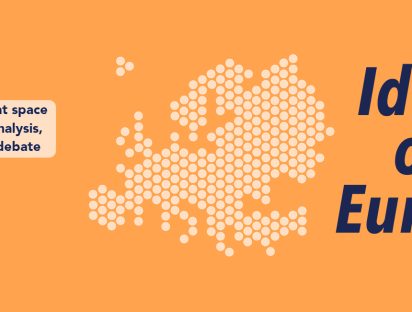Some days ago I obtained French citizenship. Not a big deal, things are made pretty easy for long-standing German residents in France and their French counterparts in Germany. And apart from voting rights it does not make a big difference anyway.
As it happened, following a surprisingly nice and unpretentious ceremony at the Préfecture, my boss discovered me on a photo in the local newspaper and together with the rest of the school’s management board, she decided to offer me a spontaneous welcome gift: a jersey of the French national team.
Her kind gesture reminded me of the recent UEFA ‘Respect’ campaign with its rather original ‘Exchange your jersey’ video clip. And I very much like the shirt itself – very classy and elegant (which are adjectives that have yet to be earned again by the team that wore it in Ukraine).
But while it is a nice idea to exchange jerseys physically, is it also easy to do so mentally? In other words: can you emancipate yourself from the powerful ‘socialisation machine’ as Brazilian anthropologist Roberto da Matta once called football, describing it as a ‘highly complex system of communication and essential values, where a group’s continuity and cultural permanence is ensured’. (1)
Can you escape the socialisation process into a specific football culture that you underwent in childhood, where it often takes place across generations in a family context? It’s when you read about the local and national football heroes, you learn about the events to be remembered, you get familiar with the colours and emblems, places and symbols.
And you follow your first world cup. My football socialisation took place in June 1970, watching the matches in Mexico. For the quarter-final against England, we had to invite ourselves to the neighbour’s because their TV set, even if it was only black and white like ours, was able to capture the recently created second channel. When Martin Peters scored England’s second goal five minutes into the second half, my neighbour’s mom said ‘don’t worry boys, it’s not over yet!’ And when Beckenbauer, Seeler and Müller had proved her right after a breath-taking comeback with a final goal in extra time, I was socialised as a German. A category I had previously not given much thought about, but which all of a sudden was embodied by white shirts and black shorts. At that time, nobody offered me a jersey, though.
This story turns me into the exact counterpart of the Green MEP Daniel Cohn-Bendit who, although he has spent his entire professional life in Germany and feels at home in both countries and languages, always takes pleasure in revelling in his own football socialisation with the brilliant French team of 1958. Raymond Kopa, Roger Piantoni, Robert Jonquet… and of course Just Fontaine’s unbelievable 13 goals in 6 matches – you take this in as a young boy, you’re French for life after that.
Football is no doubt the single most underestimated socialisation agent, especially when it comes to a first understanding of what ‘inter-national’ means. A former high-ranking French diplomat once pointed out that football is
‘the principal and perhaps only way in which the large public (what used to be called the “popular masses”) can initiate itself and participate in international relations, which are, as we know, habitually reserved to some happy few, an oligarchy of diplomats, researchers of businessmen. It allows a large number of individuals to become impregnated with the extraordinary complexity of the changing world in which we live.’ (2)
Isn’t it funny that even the ‘happy few’ like Mr Cohn-Bendit and myself, well embedded in transnational networks, seem to be incapable to escape their football socialisation? At the same time, understanding (and narrating) one’s own socialisation makes it easier to put yourself in other people’s shoes, develop intercultural empathy and meet from equal to equal.
Maybe they should exchange more jerseys in the European Council.
(1) Roberto da Matta, ‘Notes sur le futebol brésilien’, Le Débat, no. 19, 1982, p. 68-76.
(2) Pierre Brochand, ‘Economie, Diplomatie et Football’, in : Pascal Boniface (ed.), Géopolitique du football, Bruxelles, Editions Complexe, 1998, p. 73-80.
[cite]



